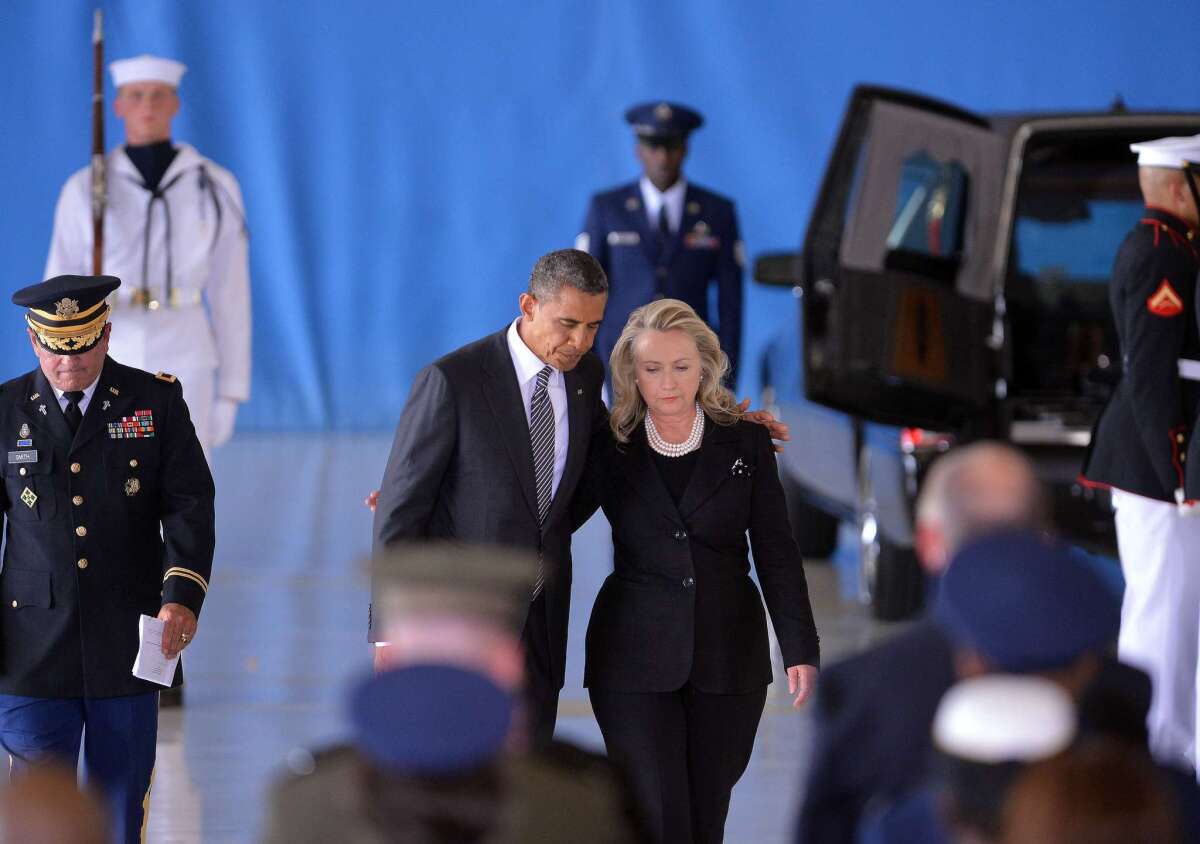Opinion newsletter: Little hope for Hillary Rodham Clinton?

President
- Share via
Good morning. I'm Paul Thornton, The Times' letters editor. It is Saturday, May 30 -- remember to go outside and soak up the pre-June Gloom while you still can. In the meantime, here's a look back at the week in Opinion.
Hillary Rodham Clinton supporters, look away now: Barring a major improvement in the economy, forces beyond anyone's control are conspiring against the election of a Democratic president in 2016 -- just as they have for past candidates from the incumbent party when a president is termed out.
Yale economist Ray C. Fair gets past all the noise of the political horse race and uses a model he's developed to successfully predict presidential elections of the last several decades. In short, it doesn't look good for Clinton or anyone else who might end up being the Democratic nominee.
In an Op-Ed article published on Wednesday, Fair elaborates on his good news for the Republicans:
We treat political campaigns like slow-moving athletic competitions and like to pretend that every last gaffe could determine the next president of the United States. But most of us also know, at some level, that forces beyond strategy and personality decide national elections.
Since 1978, based on data going back to 1916, I've documented how four conditions affect voting patterns.
The first is whether the president is running again. If so, this has a positive effect on votes for the president. The second is how long a party has controlled the White House. Voters like change; when a party has been in power for two or more consecutive terms, this has a negative effect on votes for that party's candidate. The third is the slight but persistent bias in favor of the Republican Party.
Finally, the state of the economy: A good economy at the time of the election has a positive effect on votes for the incumbent party candidate. The economic variables that matter are the rate of inflation and output (GDP) growth. Of particular importance is GDP growth in the first three quarters of the election year.
The first three conditions are working against the Democrats in 2016. The president is not running; the Democrats have been in power for two terms; there is that lingering Republican bias. According to the equation behind my work, then, the economy has to be very strong between now and the election for the Democrats to have a good chance of winning.
As for others who might not have a good chance in 2016, Doyle McManus checks in on Bernie Sanders -- and explains how even though he's a long-shot candidate, his challenging of Clinton for the Democratic nomination might refocus the campaign on important economic issues. L.A. Times
California isn't exactly Ground Zero of the gun debate, so those of us who live here might wonder why so many people make such a big deal about carrying firearms. Sociologist and author Jennifer Carlson explains how a crisis in confidence in the American dream pushes many men to pack heat. L.A. Times
Columnist Meghan Daum has a message for young college feminists: Refocus. The debate over Columbia University's "Mattress Girl' and supposedly shocking rates of sexual assault distracts from other, more subtle, yet important issues that face women in the U.S. and around the world, she says. L.A. Times
Daum's column didn't go over well with some readers and other writers. In letters to the L.A. Times, readers defended college feminists. Elsewhere, writers at Feministing, Salon, LAist and The Frisky also had strident rebuttals.
Want to publish some fraudulent research in a peer-reviewed journal? It's easier than you think. NYU journalism professor Charles Seife explains how the process for vetting research papers is broken. L.A. Times
Send us your non-fraudulent, honest feedback. Email [email protected] to share any feedback you have about this newsletter, or if you just feel like writing to us.
Get the L.A. Times Politics newsletter
Deeply reported insights into legislation, politics and policy from Sacramento, Washington and beyond. In your inbox three times per week.
You may occasionally receive promotional content from the Los Angeles Times.








